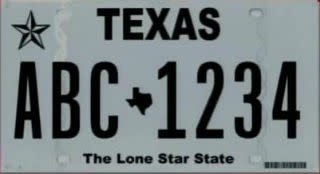Appeals court says Texas DMV violated First Amendment

The U.S. Court of Appeals for the Fifth Circuit held this week that the Texas Department of Motor Vehicles Board violated the free speech provision of the First Amendment when it refused to approve specialty license plates bearing the Confederate battle flag.
Submitted in August 2009, the Texas Board initially voted to approve the specialty plate, but after fears circulated concerning the potentially offensive nature of the Confederate flag, a second vote was held and the plate was rejected.
The Board relied upon the Supreme Court’s decision in Pleasant Grove City, Utah et al. v. Summum (2008) in which the Court ruled that the Summum religious group cannot not force Pleasant Grove City to accept and display a monument bearing the “Seven Summum Principles” of creation. It was determined that choosing which monuments the city wants displayed falls under the city’s right to government free speech, and that the city has a right to refuse donations for other projects.
In opposition, the Sons of Confederate Veterans utilized the same case, arguing that the “reasonable observer” test created by Justice David Souter categorized specialty plates as private speech. The test asks “whether a reasonable and fully informed observer would understand the expression to be government speech, as distinct from private speech.”
Here, it was argued that the Texas Board had engaged in impermissible viewpoint discrimination. As evidence, the plaintiffs pointed to the state’s prior approval of specialty plates commemorating past wars.
“Viewpoint” discrimination can be distinguished from “content-based” discrimination, which holds that it may be permissible to restrict private speech in situations when entire categories, not particular viewpoints, are withheld from discussion.
Since Texas had not deemed all flag-bearing or war-commemorating plates impermissible, the Fifth Circuit ruled that the Board engaged in viewpoint discrimination by singling out the Sons of Confederate Veterans’ request for rejection.
The case falls on the heels of a request by North Carolina for the Supreme Court to hear a case dealing with the state’s right to issue plates bearing the text, “Choose Life.” The U.S. Court of Appeals for the Fourth Circuit previously ruled that, because specialty plates represent private speech, North Carolina had engaged in viewpoint discrimination when it refused a later request to issue pro-choice specialty plates.
However, North Carolina may be able to successfully argue that it engaged instead in permissible content-based discrimination. A 2008 ruling by the U.S. Court of Appeals for the Seventh Circuit suggests that the phrase “Choose Life” could, in fact, represent both sides of the argument, arguing not for or against policy decisions the way “Pro-Life” and “Pro-Choice” explicitly do, but instead asking only that pregnant mothers choose not to have an abortion.
“A ‘Choose Life’ plate,” Judge Diane Sykes writes, “does not speak to whether abortion should be legal, but instead recognizes that under our legal system only pregnant women can choose whether or not to have an abortion. The message simply recommends that a woman contemplating abortion choose life for her unborn child.”
Yet North Carolina appears to favor another route, arguing instead that specialty plates are not government speech. “As the U.S. Supreme Court affirmed as recently as 2009,” Alliance Defending Freedom senior counsel David Cortman argues, “the government ‘has the right to speak for itself…and to select the views it wants to express.’”
Indeed, past cases have treaded close to the issue. For example, in Wooley v. Maynard (1977), the Supreme Court ruled that New Hampshire could not force moral objectors to display the state motto “Live Free or Die” on state-issued license plates.
Should the Supreme Court rule specialty plates to be government speech, it would mean a reversal of decisions by the Fourth, Fifth, and Seventh Circuits that hold such plates to be private speech. Even if the lower courts are affirmed, the high court could still hand North Carolina a victory should “Choose Life” be ruled viewpoint-neutral.
Matt George is an intern at the National Constitution Center.
Recent Stories on Constitution Daily
Beard length case first up for Supreme Court in October
India commission rules for two women jailed for Facebook use

